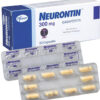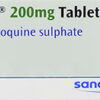Active Ingredient Details
Abilify contains the active ingredient aripiprazole, a medication classified as an atypical antipsychotic. It functions primarily by modulating the activity of neurotransmitters, particularly dopamine and serotonin, in the brain. Aripiprazole is used therapeutically to address symptoms associated with various psychiatric disorders, owing to its partial agonist activity at specific dopamine receptors.
Intended Indications
Abilify is indicated for the treatment of several psychiatric conditions, including schizophrenia, bipolar I disorder, and as an adjunct in major depressive disorder. In schizophrenia, it assists in managing symptoms such as delusions and hallucinations. For bipolar I disorder, it is used in acute manic and mixed episodes. As an adjunctive treatment in depression, Abilify aids when primary antidepressant treatment proves insufficient.
Pharmacokinetics Overview
Abilify displays a high absorption rate with oral administration, achieving peak plasma concentrations within 3 to 5 hours. Its bioavailability is approximately 87% for the oral form. Aripiprazole is extensively metabolized in the liver primarily by CYP2D6 and CYP3A4 enzymes. The half-life of aripiprazole ranges from 75 hours in extensive metabolizers to 146 hours in poor metabolizers.
Administration Guidelines
Abilify is administered orally in tablet, disintegrating tablet, solution, and oral tablet forms with or without food. Dosage should be individualized based on clinical response, indication, and patient tolerability, typically starting at lower doses with gradual adjustments. For patients with hepatic or renal impairment, caution is advised, but no dosage adjustments are generally required.
Potential Drug Interactions
Aripiprazole may interact with several classes of drugs, influencing its effects or side effect profile. Potent inhibitors of CYP2D6 and CYP3A4 enzymes can increase aripiprazole plasma levels. Conversely, inducers of these enzymes may lower its effectiveness. Abilify should be used cautiously with antihypertensives due to potential additive hypotensive effects.
Possible Side Effects
Some common side effects of Abilify include insomnia, gastrointestinal disturbances, and dizziness. Rare but serious side effects include tardive dyskinesia and neuroleptic malignant syndrome. Patients should be monitored for metabolic changes such as significant weight gain or hyperglycemia. The risk profile varies and should be continuously evaluated during therapy.
Clinical Efficacy Studies
Numerous clinical studies have demonstrated Abilify’s efficacy in reducing psychotic symptoms in schizophrenia and mood stabilization in bipolar disorder. A meta-analysis comparing Abilify with placebo displayed a significant improvement in psychiatric rating scales. As an adjunct for depression, Abilify has enhanced the efficacy of standard antidepressants in treatment-resistant cases.
Usage in Pediatrics
Aripiprazole is approved for pediatric use in conditions like schizophrenia and bipolar I disorder, typically for ages 10 and older. Pediatric dosing aligns with adult recommendations but starts at lower levels with careful monitoring. Efficacy and safety in younger populations are extrapolated from adult data and specific pediatric studies.
Discontinuation Protocol
Abrupt discontinuation of Abilify should be avoided due to potential withdrawal symptoms or exacerbation of the underlying disorder. Gradual tapering of the dose is recommended to minimize these effects. Additionally, monitoring mental state during discontinuation is critical to address any emergent symptoms promptly.
Dosing Adjustments Factors
Certain factors necessitate dosing adjustments with Abilify, including the use of concurrent medications that affect CYP450 enzymes. Genetic polymorphisms in metabolizing enzymes can alter drug levels, requiring personalized dosing. Age, body weight, and specific disease states can also influence optimal dosing.
Place in Therapy
Abilify holds a significant position in the treatment of psychotic and mood disorders due to its unique mechanism of action. It is often employed when other treatments fail or are not fully effective. Its role as an adjunct in major depressive disorder underscores its versatility in therapeutic strategies.








Reviews
There are no reviews yet.